
Alphabetical Menu
Chronological Menu
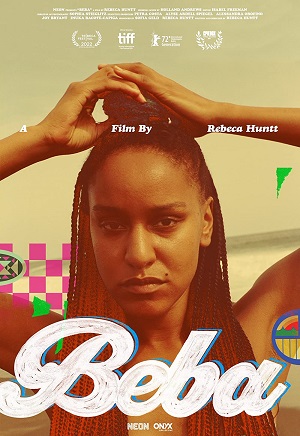
Beba is partially an autobiographical documentary about Rebeca "Beba" Huntt and partially a psychological examination of her and her family. Directed by Rebeca Huntt herself, it's an emotionally-charged roller coaster ride, but the audience has a sense of voyeurism as they peer into the lives of these ordinary people. She comes from a dysfunctional family with a history of abusive behavior and traumatic events which she traces back to the time when her father moved from the plantations of the Dominican Republic to an apartment in New York City when he was a boy. Huntt is in the process of trying to understand her family's past while trying to heal from it. As the saying goes, if we don't look at the past, how will we ever learn from it? Beba deals with a lot of emotional baggage and family scars that shape the person that Beba is today. What's sorely missing, though, is an outside perspective which would've distanced the filmmaker from her subject. That distance is essential because, otherwise, it seems like home videos or navel-gazing. Beba suffers from both of those pitfalls despite how well-edited the film is. Through the stylish cinematography and some interesting uses of metaphors, Huntt makes the film more cinematic and even poetic. Poetry is often a form of protest, but it's unclear what the documentary is really a protest for or against. All families have a history and scars, some more visible and better-healed than others. To be fair, occasionally the film's visual style overtakes its substance when less style and more intimacy as well as depth would have been useful. At a running time of just 1 hour and 19 minutes, Beba is revealing and candid, but often over-edited and not nearly as moving or powerful as Capturing the Friedmans and The Wolfpack. It opens at IFC Center via NEON.
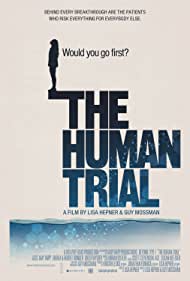
In the documentary The Human Trial, Maren Badger and Gregory Romero, two patients who suffer from Type 1 Diabetes participate in a clinical trial that might cure their diabetes. ViaCyte, a biotech research company, conducts the trial which involves stem cell treatment that's supposed to help the body produce insulin. Co-directors Lisa Hepner and Guy Mossman do a good job of providing basic, easy-to-follow information about what diabetes is and how the stem cell treatment is designed to help. They don't assume that you already know everything about diabetes and science, but, at the same time, they avoid turning the doc into something very dry and dull that makes you ask, "When is the exam??". Instead, it compels you to ask, "What can be done to clear and shorten the path toward a cure for diabetes?" You'll learn about how diabetes had been treated in the past, how expensive it is to buy insulin, and what causes diabetes. The Human Trial isn't a doc about preventing diabetes per se, but it might inspire others to at least think twice before consuming something sugary and to realize that it could be fatal if it goes untreated. It's more about how to treat diabetes in a way that cures it so that diabetes patients won't have to spend the rest of their lives with high medical costs for the insulin. There's a lot to be indignant about regarding pharmaceutical company's greed, so there's not enough of that indignance displayed in The Human Trial. Hepner and Mossman put a human face on the issue of diabetes by following the two patients as they go about their daily lives and deal with the ups and downs of the clinical trial that they're in. What the filmmakers don't delve into enough, though, is the high costs of insulin and what could be done to lower the prices until a cure for diabetes is found. Despite those minor issues, The Human Trial, at a running time of 1 hour and 31 minutes, is heartfelt, eye-opening and engaging. It opens at Village East By Angelika via Abramorama. 
The Magical Craftsmanship of Suzhou is an eye-opening documentary about the ancient arts and crafts of Suzhou, China. Director Sun Zengtian does a wonderful job of capturing the skills, talent, hard work and patience that it takes for the craftsmen and craftswomen to create a wide variety of arts and crafts ranging from furniture to lanterns, silk embroidery, jade, Suzhou boat snacks, olive pit carvings, among others. Each of the arts and crafts has its own majestic beauty that transcends words. The voice-over narration helps the audience to understand the process of creating them, but the images speak louder than words. Just watching the craftsmen and craftswomen working meticulously is worth the price of admission. You can sense their passion for their craft as you watch them work. It's fascinating to hear how their crafts have evolved throughout the years.
Director Sun Zengtian doesn't forget that the people who create the arts and crafts are human beings after all. They're also very brave and strong for continuing to work and to follow their passion despite their old age. One of the elderly craftsmen still works even though his hands shake. A craftswoman goes to an opthamologist to check her eye health which has been deteriorating. Within this world that's not always pleasant and sometimes even ugly when it comes to war and all the hatred, they've managed to find the oasis of beauty, love and poetry inside it. Sun Zengtian should also be commended for the exquisite cinematography that zooms the camera up close to let the audience see all of the details of the arts and crafts that they might not notice immediately with their naked eye. So, the camera becomes a tool that helps to make the majestic beauty more palpable. It's moving to see some of the craftsmen and craftswomen passing down their knowledge and skills to future generations. It might inspire you to follow in their footsteps or, at the very least, to appreciate their arts and crafts. At a running time of just 1 hour and 31 minutes, The Magical Craftsmanship of Suzhou is a beautifully shot, illuminating and exhilarating documentary. It opens via China Lion Film Distribution at AMC Empire in NYC and select theaters in Los Angeles, Toronto, Vancouver and San Francisco. 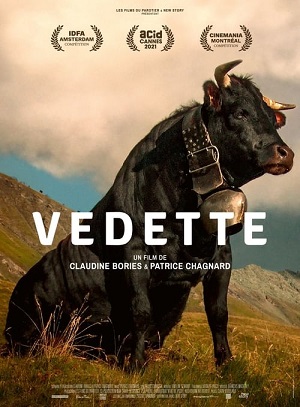
Vedette is a mildly engaging documentary about an aging cow who used to be the Queen of the Alps. Co-directors Claudine Bories and Patrice Chagnard follow Vedette through the seasons as she interacts with her owners in the Alps. Much like in the documentary Cow, the filmmakers gradually anthropomorphize the cow. She has her own personality and a wide range of emotions. She's tired, angry and even funny at times. It's not easy being a cow nor is it easy to own one. Not surprisingly, her owners have stopped eating beef. Bories and Chagnard don't spend much time getting to know the owners and their backgrounds even though there's some insight about what their experiences with Vedette are like. Vedette isn't quite as powerful nor as engaging as Cow, but it's nonetheless immersive and moving with some breathtaking scenery. The pace moves very, very slowly, and the film starts to become slightly tedious around the hour mark. Cow happens to be back in theaters at the IFC Center, so it would make for an ideal double feature with Vedette. You might think twice before eating a steak or hamburger afterwards. At a running time of 1 hour and 40 minutes, Vedette opens at Film Forum. Apples  Aris (Aris Servatalis) lives in a world where a pandemic causes everyone, including himself, to suffer from amnesia. He goes to a hospital where doctors admit that they don't know how to cure him, but they persuade him to join a recovery program. They give him a Polaroid camera and a cassette player that has specific instructions for him to follow daily. Aris soon meets and develops a relationship with Anna (Sofia Georgovasili), another amnesia sufferer who's also part of the recovery program. Apples is very difficult to fit into just one genre. It's definitely sci-fi, but what kind of sci-fi? A comedy? Satire? Romance? Thriller? The screenplay by writer/director Christos Nikou and co-writer Stavros Raptis eschews a first act and jumps right into the second act when the amnesia pandemic has already begun around the world. Doctors have no answers that explain the pandemic, so the film avoids any exposition or "world building." To call it a thriller or even a slow-burning thriller wouldn't be accurate even though there's a lot of mystery surrounding the sci-fi elements and what might happen to Aris. There are a few dry, offbeat moments of comedy similar to that of Elia Suleiman's and Jacques Tati's films, but Apples doesn't quite have enough humor or wit to be a comedy or a satire. Comedy is often rooted in tragedy, and the film has plenty of tragedy regarding its basic premise, so at least there's that. When a patient at the hospital refuses to eat an apple because he forgot what apples taste like, it's a very sad comment that Apples barely explores. The audience barely learns anything about these characters' lives before the pandemic which makes it hard to get to know them as human beings while dehumanizing them too. Why leave that up to the audience's imagination? Aris starts as a stranger to the audience and stays a stranger to them even after the end credits roll. Aris and Anna's relationship isn't very moving and remains underdeveloped as well.†Also, what could be a plot hole and remains an unexplained mystery is how the doctors at the hospital have managed to work without suffering from amnesia? Wouldn't there be a shortage of doctors eventually? Is the pandemic getting better or worse? What does work in Apples, though, is the use of metaphors, although it repeats the metaphor of apples a little to much, so it loses some of its provocativeness. The performances are decent, but the screenplay fails to design enough of a window into Aris or any of the other characters' inner lives. Just because the characters don't remember their past doesn't mean that the audience shouldn't get to know them as human beings. The cinematography is terrific and adds some visual style, but not enough to invigorate the film. Neptune Frost is a better example of a sci-fi satire that took its premise to more bold and surprising places. Apples plays it too safe. It knows where to take its ideas from, but not where to take them to. The pace also moves too slowly at times which means that some scenes tend to drag. At a running time of 1 hour and 31 minutes, Apples is initially intriguing, but often meandering, toothless and dull without taking enough risks.†
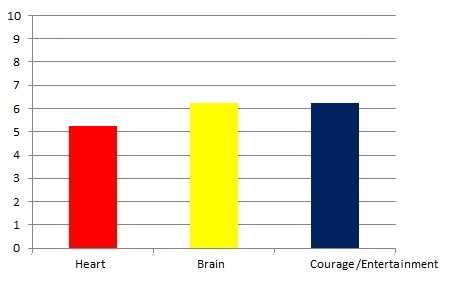 The Black Phone 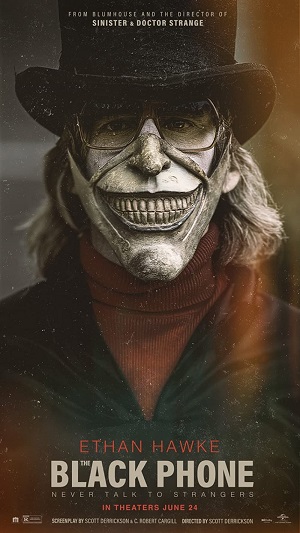 13-year-old Finney (Mason Thames) lives with his alcoholic, physically abusive father, Terrence (Jeremy Davies), and younger sister, Gwen (Madeleine McGraw). At school, he encounters bullies. Kids mysteriously disappear around town, and, soon enough, Finney becomes one of them when The Grabber (Ethan Hawk) kidnaps him and traps him in a soundproof basement with only a black phone on the wall. The Grabber's previous victims call Finney and help him to plan an escape. Like Malevolence, The Black Phone begins with one villain, Finney's father, only to introduce yet another villain, The Grabber, who's far worse. The screenplay by writer/director Scott Derrickson and co-writer C. Robert Cargil sees and treats them as villains, not as human beings, because they fail to include much character depth or any backstore. Why does Finney's father abuse his kids? Why does The Grabber kidnap, torture and kill kids? That's left up for the audience to interpret on their own. The Grabber isn't a very interesting or memorable villain. He's menacing, cruel, sadistic and wears several creepy masks, but what point is he trying to make? Even Jigsaw from Saw had a reason for kidnapping and killing his victims. Perhaps The Grabber was abused as a child himself and takes pleasure from making others suffer as well. Who knows? The Black Phone spends too much time with exposition to get to the meat of the story: Finny trapped in the basement while communicating with the ghosts of his abductor's previous victims. Until that point, you learn about Finney's abusive life at home and in school. There's so much abuse, depravity and unflinching in the film, but it's afraid to explore its dark themes beneath the surface. It also tried too hard to make the audience laugh during the brief moments of comic relief, i.e. by having Gwen curse at police officers. Her use of profanity is only funny because it comes out of the blue. Some of the kills are easily telegraphed, i.e. when one of the characters opens the basement door and sees Finney, you just know that The Grabber is somewhere around the corner and will kill that character at any moment. So, it's not surprising at all when it happens 10 seconds later. The third act feels rushed and, again, fails to treat any of its characters like human beings given the traumatic events that they've just experienced. Then you're also supposed to assume that Finney's dad completely changed from an emotionally and physically abusive parent to repentant, non-abusive parent all-of-a-sudden. Abusers don't change so quickly, so the beat with Finney's dad begging for forgiveness to Finney on his knees while crying doesn't land, and the film doesn't earn its upbeat ending. Perhaps there's a darker version of The Black Phone with a more bitter and bold ending, but the ending this version plays it seems like a toothless, contrived cop-out. The kid actors are all decent with Madeleine McGraw giving the stand-out performance among the bunch. Ethan Hawk plays against type as The Grabber. It's refreshing to see him play such a despicable character unlike anything he's played before, but, concurrently, it's a shame that the shallow screenplay doesn't let him display his full range of acting skills. The pace is uneven with a slow beginning and then it picks up in the second act before the even more fast-paced ending. The practical effects of the blood makes it look realistic, but it's not a slatter-fest with lots of blood-and-guts and disgusting scenes like some of those torture-porn or exploitation films from the 2000's and 1970's, i.e. The Texas Chainsaw Massacre or The Last House on the Left. At a running time of 1 hour and 40 minutes, The Black Phone is a tedious, contrived and undercooked amalgam of crime thriller, sci-fi, drama and horror.
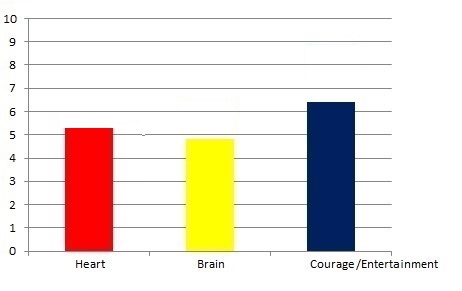 Elvis  Colonel Tom Parker (Tom Hanks) discovers Elvis Presley (Austin Butler), becomes his manager, and helps him to rise to fame. Elvis marries Priscilla (Olivia DeJonge) and struggles with prescription drug abuse while battling his personal demons which sends him on a downward spiral.
The screenplay has four writers, namely writer/director Baz Luhrmann along with co-writers Sam Bromell, Craig Pearce and Jeremy Doner, and it feels that way because it crams a lot of Elvis Presley's life and rushes through a lot of it. The best biopics are the ones that show the human being behind the star, like in Ray or Rocketman while knowing what aspects to focus on rather than other aspects. Elvis seems more concerned about showing a glimpse of Elvis as a musician, which in many ways makes it conventional. Watching him rise to fame and then deal with the consequences of his fame before he hits rock bottom could've been engaging if the audience were to get to know Elvis more behind the curtain, so-to-speak. Everyone already knows that he was famous and battled prescription drug abuse which affected his marriage. He also had a toxic relationship with his manager who took advantage of him and gaslit him. Elvis is told from Colonel Tom Parker's perspective, but if he's a liar and gaslighter, why should the audience trust him to begin with? Elvis surely had a lot going on inside of him on a psychological and emotional level, so it's a shame that the film doesn't explore any of that enough. It just moves along from Point A to Point B in Elvis's life while forgetting to humanize him. Aline, the under-seen loose biopic of Celine Dion, is an example of a much more captivating, moving and profound biopic. Elvis says nothing new, surprising, revealing or enlightening about anything that it teases the audience with whether it's dysfunctional marriages, toxic business partners or the double-edged sword of fame. Elvis' relationship with his mother, Gladys (Helen Thomson), remains underexplored and falls flat as does his marriage with Prescilla. † Just as expected from a Baz Luhrmann film, the biggest character in the film is the camera. Luhrmann rarely lets any scene rest with too much editing. Style can sometimes compensate for the lack of substance, but here he's just trying too hard to dazzle the audience with the camerawork, editing, montages and more. It makes the film feel more like a nauseating music video than a film. Why not let the film breathe a little so that the audience can breathe too? The music, of course, is great and there are plenty of scenes showing Elvis singing which are among the best scenes. Austin Butler gives a breakthrough performance and has enough charisma to portray Elvis believably. To be fair, there's not a single actor who can match the level of charisma that the real Elvis exuded. Tom Hanks, wearing a fat suit, gives an awkward, cringe-inducing performance. It doesn't help that he's given dialogue that's either stilted or corny--even his final line of dialogue at the end is so preachy and cheesy that it'll make your eyes roll. Kelvin Harrison Jr., one of the best actors of our time, shows up as B.B. King, and you'll barely recognize him behind all of the make-up and costume design. At a running time of 2 hours and 39 minutes, which feels more like 4 hours, Elvis is an overlong, overproduced, headache-inducing biopic with excessive style over substance.
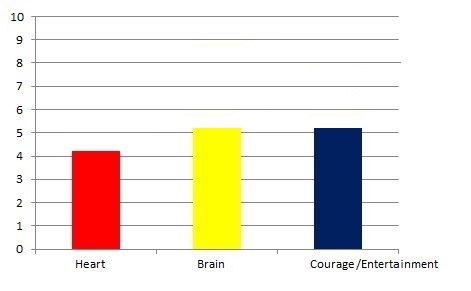 Marcel the Shell With Shoes On 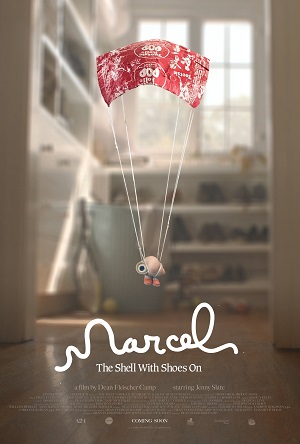 Marcel (voice of Jenny Slate), a shell with shoes on, lives with his grandma, Connie (voice of Isabella Rossellini) inside the Airbnb home of a human, Dean (Dean Fleischer-Camp). He used to live among many other shells that were part of his friends and family, but after the previous homeowners, Larissa (Rosa Salazar) and Mark (Thomas Mann), divorced and moved out, they took the other shells with them. Dean decides to document Marcel's life and to post the videos online in hopes of using social media to find the previous homeowners and Marcel's long-lost family and friends. When Marcel becomes an internet sensation, he catches the attention of 60 Minutes's journalist, Lesley Stahl, whom he's a huge fan of.
Marcel the Shell With Shoes On is an enormously entertaining delight for all ages. It's not a Pixar film, but it has the heart, mind and soul of a Pixar film. The screenplay by writer/director Dean Fleischer-Camp and co-writers Jenny Slate and Nick Paley do a great job of expanding the shorts and children's book that it's based on. Sometimes a feature-length film based on a short feels stretched too thinly, but that's not the case here. The filmmakers find just the right balance between making audiences laugh and pulling at their heartstrings without going overboard either way. They introduce you to the world of Marcel through the "documentary" that Dean films about Marcel with a light sense of humor. The first ten minutes or so are basically expositional, but far from dry. You'll learn how Marcel ended up alone with his grandma and Dean, and how Marcel and his grandma have a symbiotic relationship with insects inside the house and outdoors. You'll also get to know Marcel's personality. He's not only adorable, but also witty, funny and optimistic. His bond with his grandma is very endearing. Marcel the Shell On could've easily become either too schmaltzy, zany or tedious. Fortunately, the wonderful screenplay avoids all of those pitfalls, and it also has a few surprises up its sleeve, i.e. a scene with a squirrel that won't be spoiled here. The filmmakers don't pander to the audience, so they allow the film to be family-friendly without being infantile or too silly either. You'll end up caring about Marcel as though he were human, and you'll be rooting for him to find the happiness that he deserves. As the powerful poem by Pablo Neruda says, "They can cut all of the flowers, but they can't stop the spring from coming." To watch the garden of Marcel's soul flourish as he searches for his beloved family and friends is a joyous, profound and inspirational experience to behold. On an aesthetic level, Marcel the Shell With Shoes On is also a triumph. The stop-motion animation adds to the film's charms and visual delights. Jenny Slate has just the right kind of voice for Marcel that's filled with both cuteness and emotion. The pace moves briskly, but not too briskly. Most importantly, though, the uplifting third act earns its uplift every step of the way. At an ideal running time of 1 hour and 29 minutes, Marcel the Shell With Shoes On is a heartwarming, funny and exuberant delight for everyone, young and old. It's destined to become a cult classic.
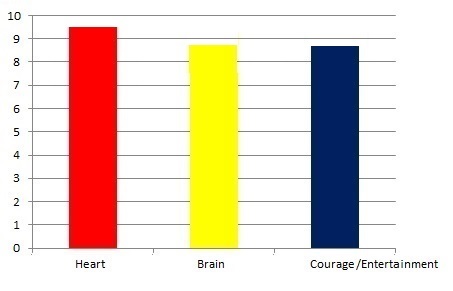 Murder at Yellowstone City 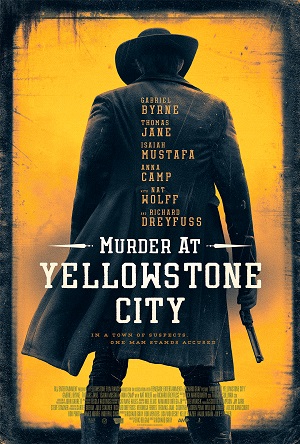 In Yellowstone City, Dunnigan (Zach McGowan), a local prospector, strikes gold and, soon after, gets murdered. Sheriff Ambrose (Gabriel Byrne) arrests Cicero (Isaiah Mustafa), an ex-slave, for the murder and throws him in jail. Cicero insists that he's innocent. is arrested for his murder. Thaddeus (Thomas Jane), the town's preacher, and his wife, Alice (Anna Camp), believe that he's innocent and that someone else must be the actual killer. Richard Dreyfus plays the town's bartender and Natt Wolff plays Sheriff Ambrose's son, Jim.
Murder at Yellowstone City is just as dull and imaginative as its title. The screenplay by Eric Belgau centers on a murder mystery that's neither thrilling, suspenseful nor intriguing. There are too many characters, none of whom have enough of a backstory to be engaging or to feel like fully-fleshed human beings. Belgau seems more interested in moving the plot forward than getting to know any of the characters, but even the plot doesn't really have much of a momentum until the last thirty minutes or so. The audience sees Dunnigan getting murdered, but doesn't see the face of his murderer. Obviously, Cicero couldn't be the real killer, so it must be someone else. Could it be Sheriff Ambrose? Perhaps his son, Jim? Or the bartender? The film doesn't give the audience much of a reason to care about who's the real killer. They just want to get to the inevitable action-packed duel, but to get to that point is a long slog with no wit, comic relief or anything that resembles fun. Westerns are supposed to be either a guilty pleasure B-movie that's at least mildly entertaining or a brilliant A-movie like the exhilarating, gripping and heartfelt Unforgiven that transcends the Western genre. Murder at Yellowstone City doesn't veer toward either of those levels. Instead, it falls flat with stilted dialogue. Perhaps if it didn't take itself so seriously, it could've been at least a fun, entertaining and mindless B-movie. Even in terms of scenery and cinematography, Murder at Yellowstone City doesn't have much to write home about or, more importantly, to keep the audience hooked on a visceral level. The action, when it does finally arrive, isn't well-choreographed or edited. This is the kind of movie that just seems to be going through the motions while forgetting to entertain the audience or to appeal to their emotions. It's great to see good actors on screen, but they deserve a better movie and much better material that breathes some life into their roles. Moreover, the pace moves too slow, so the running time of 2 hours and 6 minutes feels more like 3 hours. Ultimately, Murder at Yellowstone City is an anemic and vapid slog that's too low on thrills, suspense and surprises.
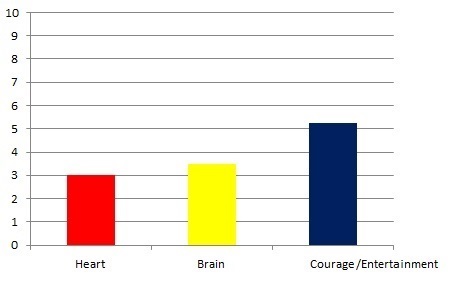 Olga  Olga (Anastasia Budiashkina), a teenage gymnast, lives with her mother, †Ilona (Tanya Mikhina), an investigative journalist in Kyiv, Ukraine, while protests against the government take place. After an assassination attempt on her mother, Olga moves to Switzerland for safety and continues to train as gymnast. She calls her mother and friend, Sasha (Sabrina Rubtsova), back home to check in with them as violence escalates in Ukraine and their lives become at stake.
The recent film 1982 has a lot in common with Olga---at least on the surface: they both show the perspectives of a child while tensions lurk off-screen. The tensions in Olga derive from the 2013 uprising in Ukraine; the tension in 1982 come from the 1982 Lebanon War. Writer/director Elie Grappe and co-writer RaphaŽlle Desplechin keep those tensions in the background while focusing on how they affect Olga in Switzerland, where her father has citizenship. Focusing on Olga would've been fine if the audience were able to see more of her inner battles as she confronts the fear and terror of potentially losing her mother and friends back and home. A lot goes on inside of Olga, but the screenwriters don't dig deep enough to explore those mixed bags of emotions. There are many scenes of Olga practicing gymnastics and not enough scenes getting to know her as a human being. To be fair, at least the filmmakers avoid using voice-over narrating to get inside Olga's head. The documentary footage from Ukraine mixed with the narrative feels intense and adds to the palpable suspense, but whenever Olga goes back to her gymnastics, the film becomes tedious and meandering. What's it really about Olga's aspirations to become a gymnast? Or about her relationship with her mother during turbulent times at home? The audience also learns very little about Olga's mother. 1982 opened up the narrative to show the perspectives of the adults which added some more depth. Olga shies away from humanizing Olga's mother who's a very important person in Olga's life and in Ukraine as an investigative journalist. Why ignore her for much of the film? By making her as barely a supporting character, it dehumanizes her while diminishing the film's emotional resonance. † The performances in Olga add much-need poignancy that the screenplay sorely lacks. Anastasia Budiashkina gives a heartfelt, raw performance which helps to make the film at least mildly engaging. The cinematography is decent, but nothing exceptional that adds any style. Olga's physical and mental struggles to be a gymnast could be seen as a metaphor for her mom's struggles in Ukraine or as an extension of Olga's innate feelings, although, it's not a very profound metaphor and it gets repeated over and over. 1982 took more risks with much more provocative metaphors with more visual style that made it rise well above mediocrity. At a brief running time of 1 hour and 27 minutes, Olga is well-acted, but often tedious and meandering while failing to pack an emotional punch.†It pales when compared to the much more powerful 1982.
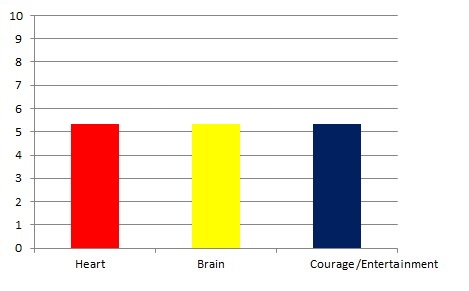 |